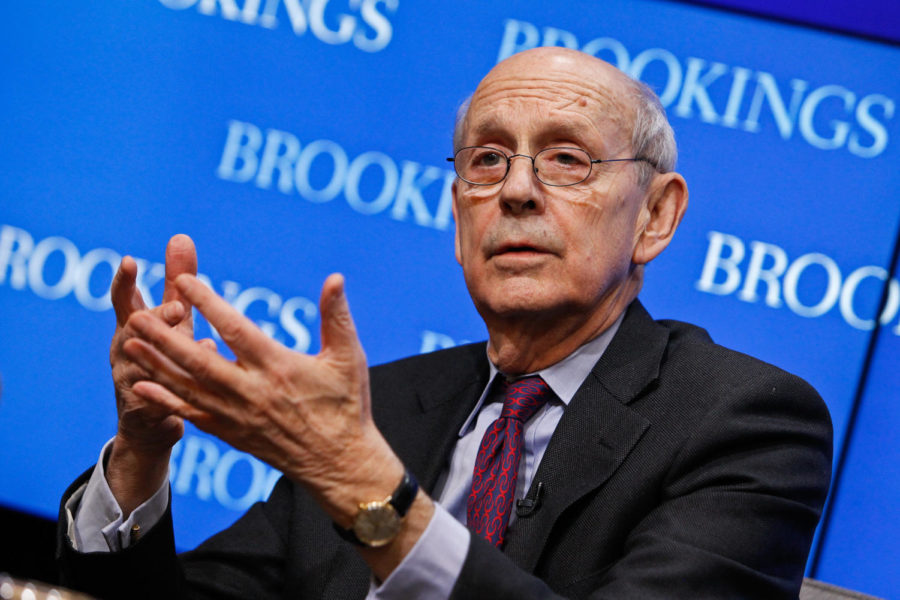Last week, the potential retirement of Justice Stephen Breyer became a political hot potato among opinion columnists.
At 82, Breyer is the oldest justice on the Supreme Court by nearly a decade. He has been in fairly good health, save a few bike accidents, since his confirmation in 1994, but his age concerns Democrats who want to secure a younger, liberal justice early on in President Joe Biden’s term.
Supreme Court justices are nominated by the president and confirmed by a majority vote in the Senate. Democrats control Congress and the presidency but their majority in the Senate is razor thin. If one Democrat leaves office for any reason before the 2022 midterms, there is an opportunity for Sen. Mitch McConnell to take over as majority leader and block Biden’s nominees until the 2024 presidential election.
Paul F. Campos wrote in The New York Times that it is irresponsible for Breyer to not retire immediately. With so many senators over the age of 70, there is ongoing concern that Democrats will unexpectedly lose their majority.
Democrats are afraid because they have seen this before. Last year, Justice Ruth Bader Ginsburg died just 46 days before the 2020 election and McConnell spared no time confirming her replacement, even though he refused to hold a vote for Merrick Garland in 2016. During President Barack Obama’s administration, Ginsburg was pressured to retire amidst bouts of cancer, but she declined to do so.
“For [Breyer] to continue to make the same gamble that Justice Ginsburg made and lost runs the risk of tainting his legacy as a justice and has the potential to be an anti-democratic disaster for the nation as a whole,” Campos said.
Other columnists disagree with Campos’ reasoning. Noah Feldman argued against encouraging Breyer to retire, saying that Breyer’s pragmatism outweighs his willingness to act in favor of any one party.
“The more the timing of his retirement is depicted as a partisan objective, the less he will want to do it. To be seen to retire ‘in order’ to let Biden pick his successor would betray Breyer’s own career-long objective of making decisions based on what is right for the country, not for one party,” Feldman said.
There are strong arguments for why Breyer should retire, but the “will he, won’t he” spectacle created by that debate hurts the sanctity of the Supreme Court. Article III of the Constitution states that justices “shall hold their offices during good behavior,” meaning that they are confirmed for lifelong tenures. This dissuades justices from having external political pressures and other entanglements while on the bench. Pressuring justices to retire based on politics, not their health or wellbeing, taints the goal of having a nonpartisan judicial branch.
The circumstances of Justice Ginsberg’s death and her successor’s confirmation were, in my eyes, unfortunate, but that does not mean that she should be posthumously lambasted for not stepping down earlier.
Supreme Court justices should be able to fulfill their terms without outside influences, including pressures to retire for their party’s political gain. It may sound selfish for a justice to prioritize their career over their ideology, but it is important to encourage nonpartisanship and judicial independence in an increasingly polarized world.
Breyer has not responded to recent calls for his retirement. However, if he does choose to step aside, Biden will have an opportunity to fulfill a campaign promise: nominate the first Black woman to the Supreme Court.
Catherine Hurley can be reached at [email protected]. Follow her on Twitter @cath_hurley.




















